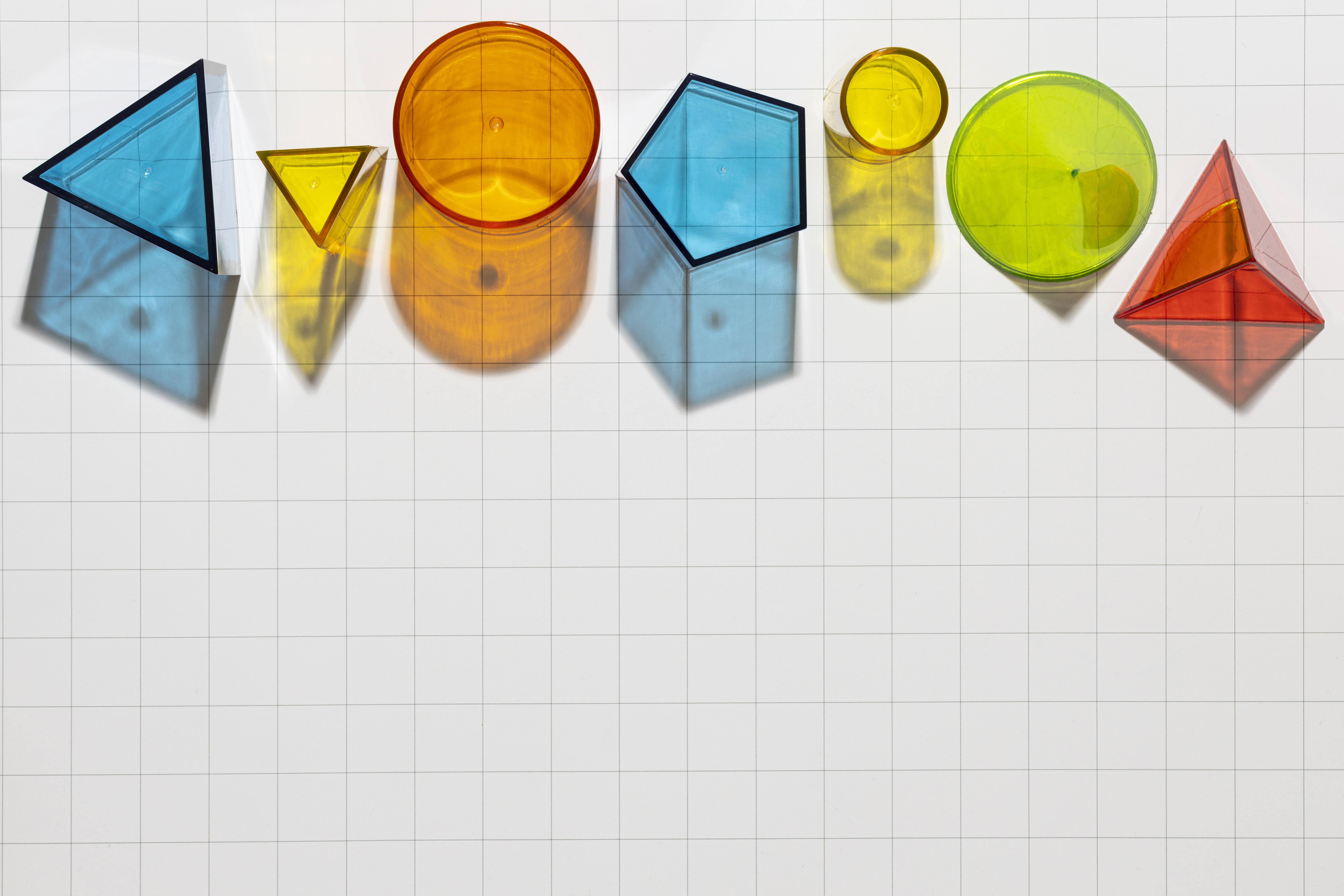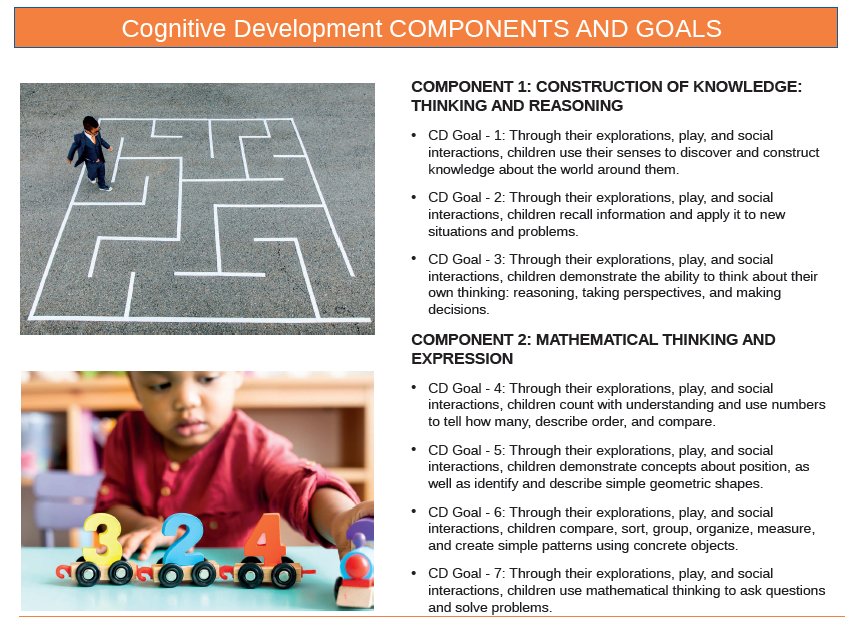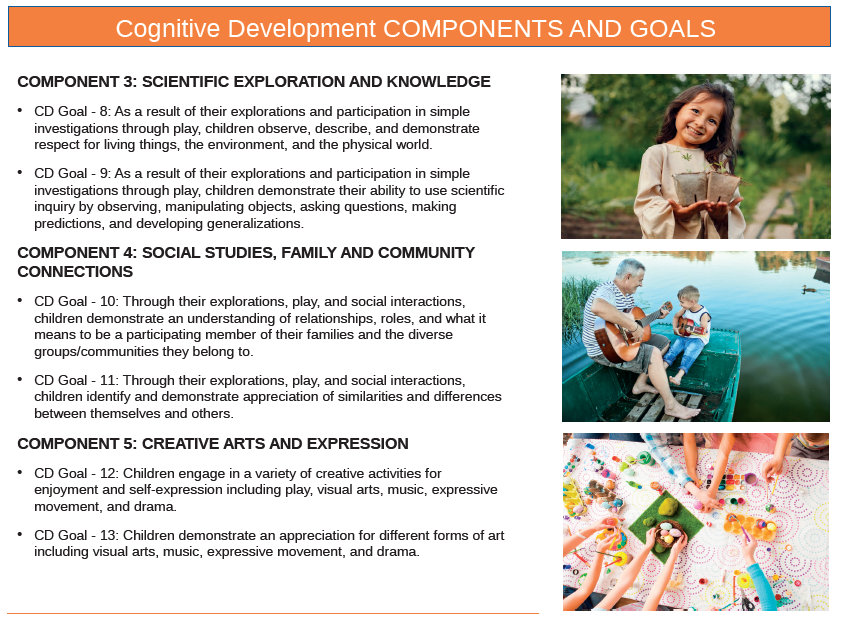
Cognitive Development (CD)
Cognitive Development Domain
The Cognitive Development domain focuses on children’s ability to acquire, organize, and use information in increasingly complex ways. In their search for understanding and meaning, young children play an active role in their own cognitive development. They begin to explain, organize, construct, and predict – skills that lay the cognitive foundation needed to explore and understand increasingly sophisticated concepts and the world in which they live. Children learn to apply prior knowledge to new experiences and then use this information to refine their understanding of concepts as well as form new understanding.
Relationships
For very young children, cognitive development is supported and encouraged through their relationships with others. It happens through daily activities, routines, and interactions with adults and other children. Through relationships, children become aware of things in the physical environment, as well as other people. They begin to understand that their actions have an effect on their environment and can think about things that are not present. They typically learn a great deal about themselves and form ideas about family roles and community helpers based on their daily experiences in their own home and community. They also begin to understand simple scientific concepts by noticing, wondering, and exploring people, toys, plants, animals, and materials around them.
Thinking Skills
As children grow older and move into the preschool years, their thinking becomes progressively complex, and they become more effective thinkers. They begin to ask questions as they engage in increasingly focused explorations. Children can begin using the scientific method. This will happen as we encourage them to wonder, ask questions, predict, experiment to see if their predictions are correct, record their findings, and then reflect and draw conclusions based on the results. Children also begin to demonstrate problem-solving skills through this process and other types of explorations. Adults can also help children develop an understanding of and deep respect for nature and their environment. Finally, when children are given opportunities to be creative with open-ended materials, their creativity blossoms and they learn to express themselves in imaginative ways. Through the process of exploring their world and a use of various materials, children develop an appreciation for different forms of art, for the natural world, and for the people and cultures they relate to.
Cognitive Development Progress
When reading through this domain, it may be noticeable that there is interrelatedness among sub-areas of children's development. Processes and skills such as making observations, asking questions, and trying out new ways of doing things support learning across all of the domains and link them together.
Many factors can be related to the progress children demonstrate in the Cognitive Development domain. For instance, the home environment of some children may provide many opportunities to explore and learn new concepts, while other children’s homes may be less stimulating. Children who have disabilities may need extra support to make progress on the Developmental Indicators in this domain because individual differences in how they see, hear, process information, and/or communicate can affect how they take in information and how they express what they know. Similarly, children who are dual language learners may learn new concepts and demonstrate what they know best in their home language.
Adults working with children can promote children’s cognitive development by providing interesting materials and experiences, as well as encouraging children to explore and use the materials in different ways. It is critical to provide early experiences that will help both girls and boys develop confidence in their ability to solve problems and a positive attitude towards mathematics, science, social studies and the arts. In collaboration with a trusted adult, the internet can be a wonderful tool to learn more about a vast of animals, plants, people, and places. From toys that require children to problem solve, to art materials or blocks, almost any experience can be used to support children’s understanding of the concepts included in the Cognitive Development domain.


Component 1: Construction of Knowledge: Thinking and Reasoning
Component 2: Mathematical Thinking and Expression
Component 3: Scientific Exploration and Knowledge
Component 4: Social Studies, Family, and Community Connections
